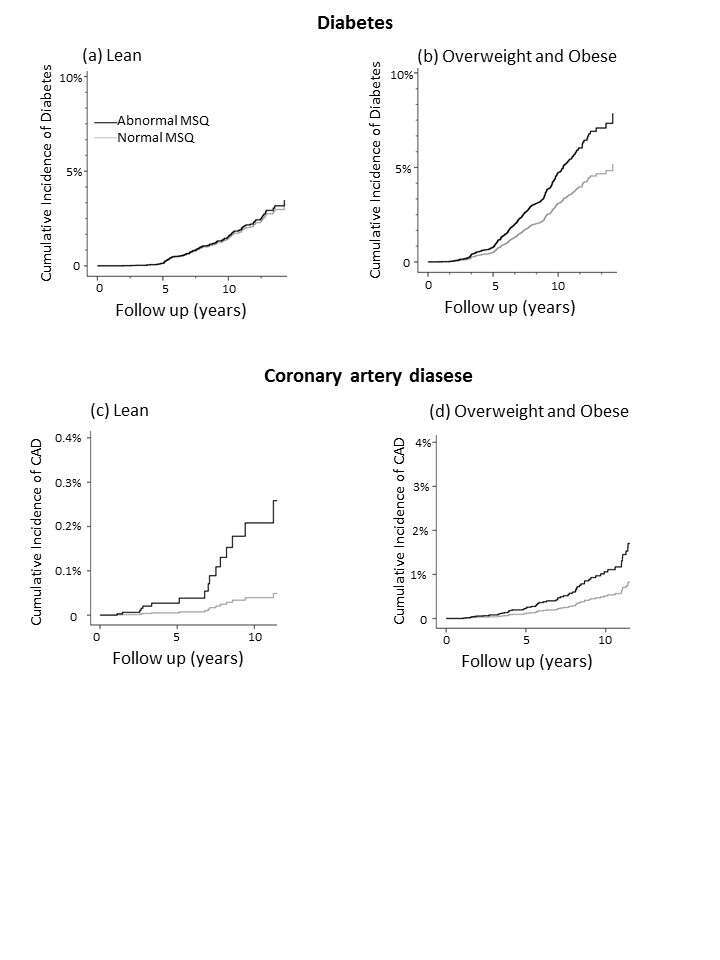Objective: The effect of sleep quality on cardio-metabolic risk among young adults is unclear. Our aim was to study whether sleep quality predicts future incidence of diabetes and coronary artery disease (CAD) in young adults, independent of other risk factors.
Methods: Incident diabetes and CAD during a mean follow-up of 6.4±4.1 years was assessed among 26,023 men (mean age 30.9±5.6 years) of the Metabolic Lifestyle and Nutrition Assessment in Young Adults (MELANY) cohort who were stratified by the Mini Sleep Questionnaire (MSQ) score, a comprehensive measure of sleep quality (scale:10-70; normal range 10-24). The association between the MSQ and incident diabetes and CAD was determined utilizing the Cox proportional hazard model.
Results: There were 445 cases of diabetes and 92 cases of CAD during 151,312 person years. Compared to a normal MSQ score, an abnormal MSQ score was associated with a 53% higher incidence of diabetes (95%CI; 1.22-1.94,p<0.001) after adjustment for age, BMI, fasting glucose and triglyceride levels, physical activity, smoking, family history of diabetes and white blood cell (WBC) count. The deleterious effects of abnormal sleep quality were evident more among overweight or obese participants (interaction p=0.046; Figure 1a-b). An abnormal MSQ was also associated with a 2.38 higher incidence of CAD (95%CI; 1.38-4.11,p=0.002), independent of age, BMI, family history of CAD, smoking, systolic and diastolic blood pressure, WBC count, HDL, LDL and triglyceride levels. These results persisted for the latter model after BMI stratification (Fig. 1c-d; p of interaction 0.521), or when MSQ was treated as time-dependent variable with increased risk for CAD of 3.6% (95%CI=1.024-1.049,p<0.001) for every point of the MSQ score.
Conclusions: Sleep quality is an independent cardio-metabolic risk predictor in apparently healthy young adults. The use of a simple questionnaire to assess sleep quality may be a useful tool for risk stratification.


